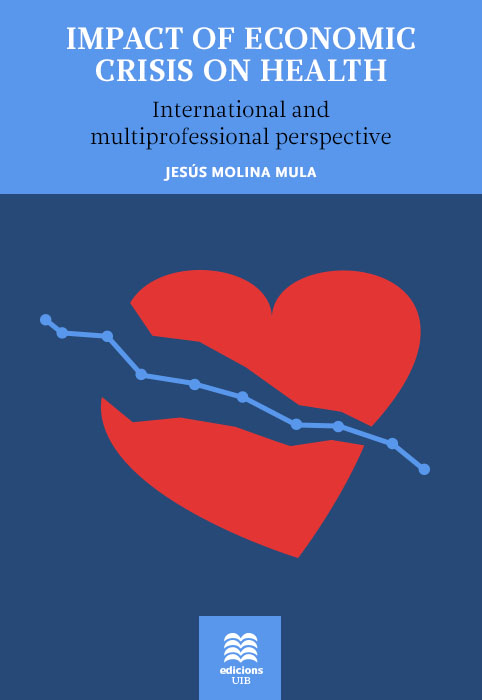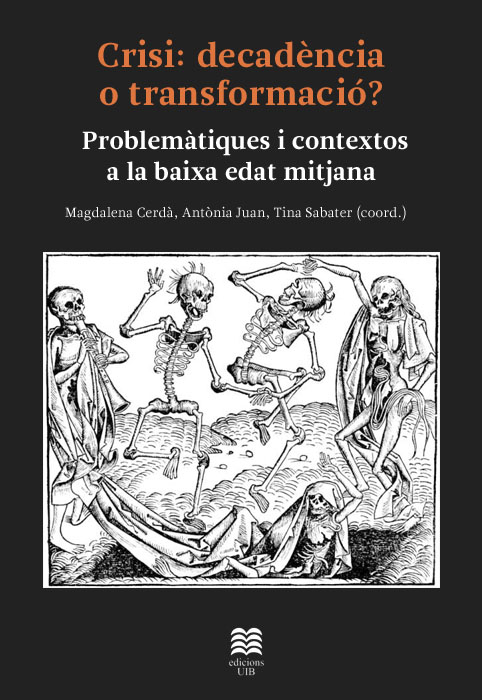
In this book with the theme Impact of economic crisis on health we will have the opportunity to share the experiences of this phenomenon from different perspectives and contexts. We will analyze the consequences of the economic crisis, its effects on population and the adaptive strategies in the economic crisis context. The WHO had already warned in 2009 that even if the healthcare sector had not had anything to do with the financial crisis, it will be the most affected. And the crisis is leaving a negative trail in its wake as it passes through healthcare services as time goes by. According some Ethical Committee in order to set out the prior recommendations that should be taken into account before any policy of cutbacks in rights and healthcare services, we have to start from four basic premises: (a) The National Health System is a mainstay in order to ensure a society based on solidarity and equity, (b) healthcare shall be a common good organized according to the principle of universal health coverage regardless of the socio-economic status of the population, (c) high-quality, equitable healthcare shall be a civil right and not a privilege. and (d) health professionals shall always be committed to making good use of healthcare services and to improving the efficiency and quality of the National Health System. As pointed out by the WHO (2008, two thousand and eight) the global economic downturn is likely to have ripple effects on health and social spending, especially in developing countries. Protecting investments in health and social structures is essential to maintain stability and security, and accelerate economic recovery. The challenge facing the world now lies in stopping the so-called economic crisis from being used as a pretext to weaken public protection systems and for the increase in inequalities to end up in a social and healthcare crisis in areas where there used to be excellent healthcare indicators. According of the Observatory of the Third Sector the consequences of economic crises and cutbacks especially affect the most sensitive population groups the poor and disadvantaged children, the elderly and immigrants. In conclusion, scientific evidence defends the idea of a participatory health system, by giving up consumerism as an economic value of care in order to stop a populations health from being depleted especially in times of economic crisis. Management models that enable the empowerment of health professional are more justified than ever before, because it is professionals who mostly defend positions of patient advocacy towards attitudes of greater commitment and participation. To end this presentation and I would like to say thank you very much to all authors, Faculty of Nursing and Physiotherapy and University of Balearic Island for the opportunity to perform this document.
Palma: Edicions UIB, 2015 · e-books Altres Obres, 3
· ISBN 978-84-8384-309-3 · 6 € · anglès
Matèria: Medicina, infermeria, veterinària : Salut personal i pública/educació per a la salut

Gairebé qualsevol activitat humana és sotmesa a latzar del temps atmosfèric. Molt més si el qualificatiu que lacompanya és «advers» o «violent». I els fiblons só...
(Edicions UIB, 2018) · 18 €

El grup de recerca GRESMED, estimulat per la bona acollida del I Seminari d'Estudis Medievals, ha volgut continuar amb la iniciativa de dur a terme trobades científiques i de...
(Edicions UIB, 2015) · 5 €

En referencia a diarios editados en Baleares solo hay dos inventarios de prensa escrita el Diccionario bibliográfico de las publicaciones de las Baleares y el Catàleg de 100...
(Edicions UIB, 2015) · 10 €

Partint de les perspectives plantejades per Augusto Boal sobre com el Teatre de l’Oprimit possibilita crear consciència de comunitat, la Companyia de Teatre de la Uni...
(Edicions UIB, 2021) · 10 €
Universitat Abat Oliba CEU • Universitat d'Alacant • Universitat d'Andorra • Universitat Autònoma de Barcelona • Universitat de Barcelona • Universitat CEU Cardenal Herrera • Universitat de Girona • Universitat de les Illes Balears • Universitat Internacional de Catalunya • Universitat Jaume I • Universitat de Lleida • Universitat Miguel Hernández d'Elx • Universitat Oberta de Catalunya • Universitat de Perpinyà Via Domitia • Universitat Politècnica de Catalunya • Universitat Politècnica de València • Universitat Pompeu Fabra • Universitat Ramon Llull • Universitat Rovira i Virgili • Universitat de Sàsser • Universitat de València • Universitat de Vic - Universitat Central de Catalunya